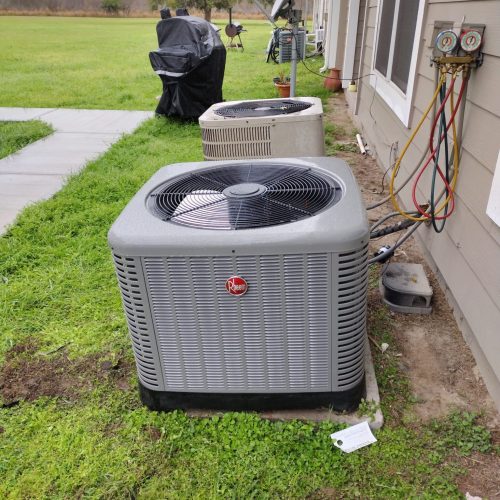
With energy prices going up, people who own homes are looking for ways to make their heating, cooling, and air systems work more efficiently. By doing this, they can pay less in bills and also help the planet by being more eco-friendly. Let’s go over some handy advice to make your system use energy better. Why it matters:
Saving money: When your system uses less power, your bills go down. This saves you cash over time.
Helping the environment: Using less energy means you’re doing your part to cut down on pollution, which is good for the earth.
Keeping your system running longer: When your system doesn’t have to work as hard, it can last longer. This means you won’t have to fix or replace it as soon.
Tips to make your system more efficient: Regular check-ups: Make sure to have someone look at your system often. Clean or change the air filters, check the ducts, and make sure everything’s working right.
Smart thermostats: A thermostat that you can program can adjust the temperature for you, saving energy when you’re not home or asleep.
Sealing leaks: Close any gaps in doors, windows, and ducts to keep the air you want inside and the air you don’t want out.
Upgrade: Think about getting a system with a high SEER rating. New models are usually better at saving energy.
Zoning systems: These systems let you choose different temperatures for different rooms, so you’re not heating or cooling empty spaces. Insulate your home: Make sure your house is well insulated. This keeps the temperature steady and eases the load on your system.
Take care of ventilation: Keep air ducts and vents clean to make sure air can flow freely through them. Use natural air: Open windows and doors to let in fresh air when the weather is nice. It helps keep your home cool without using energy.
Smart controls: These devices let you change settings from anywhere, helping you manage your system better.
Energy audits: A professional can check your home and find ways to make it use energy more efficiently. Following these steps can lead to big savings on energy and make your home more comfortable and eco-friendly.
Making your HVAC system work better and save energy requires a few steps: keep it well-maintained, use smart tech, and be careful about how much energy you use. Doing these things can make your system run smoother, cut down on costs, and help the planet. Focusing on saving energy means you’ll spend less on bills, do good for the environment, and keep your home comfy.

